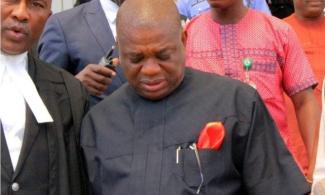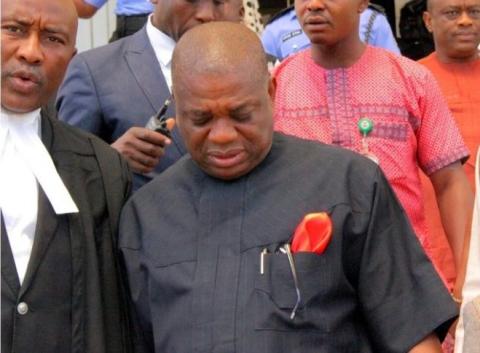
The EFCC made the plea before Justice I. E. Ekwo of the Federal High Court, Abuja, on Tuesday, February 2, and the trial could not proceed because of the objection raised by the anti-graft agency.
The Economic and Financial Crimes Commission has asked the court to allow the case of a former Governor of Abia State and senator representing Abia North at the National Assembly, Orji Uzor Kalu, to be transferred to Lagos.
The EFCC made the plea before Justice I. E. Ekwo of the Federal High Court, Abuja, on Tuesday, February 2, and the trial could not proceed because of the objection raised by the anti-graft agency.

The EFCC Director, Legal and Prosecution, Chile Okoroma, told the court, that the agency had written to the Chief Judge of the Federal High Court, requesting that the case be transferred to the Lagos Division of the Federal High Court, which had the jurisdiction to entertain the matter.
He said, “On 20 January, 2021, we wrote a letter to the Chief Judge of the Federal High Court requesting the transfer of this case to the Lagos Division of this court.
“My lord, we have also written another letter dated February 2, 2021, which I have served on all parties involved in this matter. We will be asking that this matter be adjourned sine die, pending the decision of the Chief Judge.
“One thing is certain; the case cannot be heard in Abuja.”
However, Justice Ekwo, in a brief ruling, rejected the application of the prosecution to adjourn sine die. Instead, he adjourned proceedings till June 7, 2021 for the prosecution to report on the outcome of its application to the Chief Judge.
According to an EFCC release on Tuesday, Kalu alongside his firm, Slok Nigeria Limited and former Director of Finance in Abia State, Jones Udeogu, are to be docked for fraud to the tune of about N7.1billion.
The ex-Abia governor was already serving his 12-year jail term at the Kuje Prison, Abuja, when the Supreme Court, nullified his conviction by Justice Idris Mohammed of a Federal High Court, Lagos on technical grounds.
The Apex Court held that the trial judge was no longer a judge of the Federal High Court at the time he delivered the judgment, having been elevated to the Appeal Court.